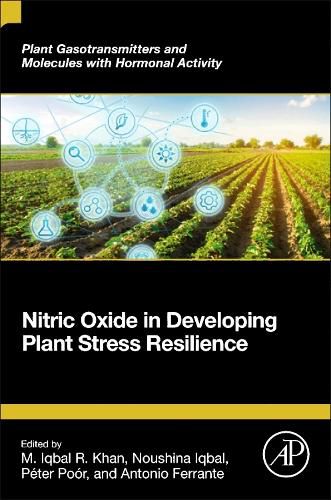Readings Newsletter
Become a Readings Member to make your shopping experience even easier.
Sign in or sign up for free!
You’re not far away from qualifying for FREE standard shipping within Australia
You’ve qualified for FREE standard shipping within Australia
The cart is loading…






Nitric Oxide in Developing Plant Stress Resilience presents a strong focus on genetics and molecular mechanisms, examining crosstalk with other signaling molecules and the role this plays in the alleviation of oxidative damage. Abiotic stress negatively impacts plants productivity and alters the metabolism at the cellular or whole plant level, disturbing the mineral nutrients status, enzyme activities and osmotic homeostasis. Beginning with the biosynthesis of NO and its mode of action, chapters review various molecular interactions, including phytohormonal crosstalk, ROS metabolism, post-translational modification, and nutrients homeostasis.
In addition, the book also highlights genome editing and proteomic approaches that can be used to manipulate NO responses. This is an essential resource for students and researchers interested in plant physiology, biochemistry and genetics.
$9.00 standard shipping within Australia
FREE standard shipping within Australia for orders over $100.00
Express & International shipping calculated at checkout
Nitric Oxide in Developing Plant Stress Resilience presents a strong focus on genetics and molecular mechanisms, examining crosstalk with other signaling molecules and the role this plays in the alleviation of oxidative damage. Abiotic stress negatively impacts plants productivity and alters the metabolism at the cellular or whole plant level, disturbing the mineral nutrients status, enzyme activities and osmotic homeostasis. Beginning with the biosynthesis of NO and its mode of action, chapters review various molecular interactions, including phytohormonal crosstalk, ROS metabolism, post-translational modification, and nutrients homeostasis.
In addition, the book also highlights genome editing and proteomic approaches that can be used to manipulate NO responses. This is an essential resource for students and researchers interested in plant physiology, biochemistry and genetics.